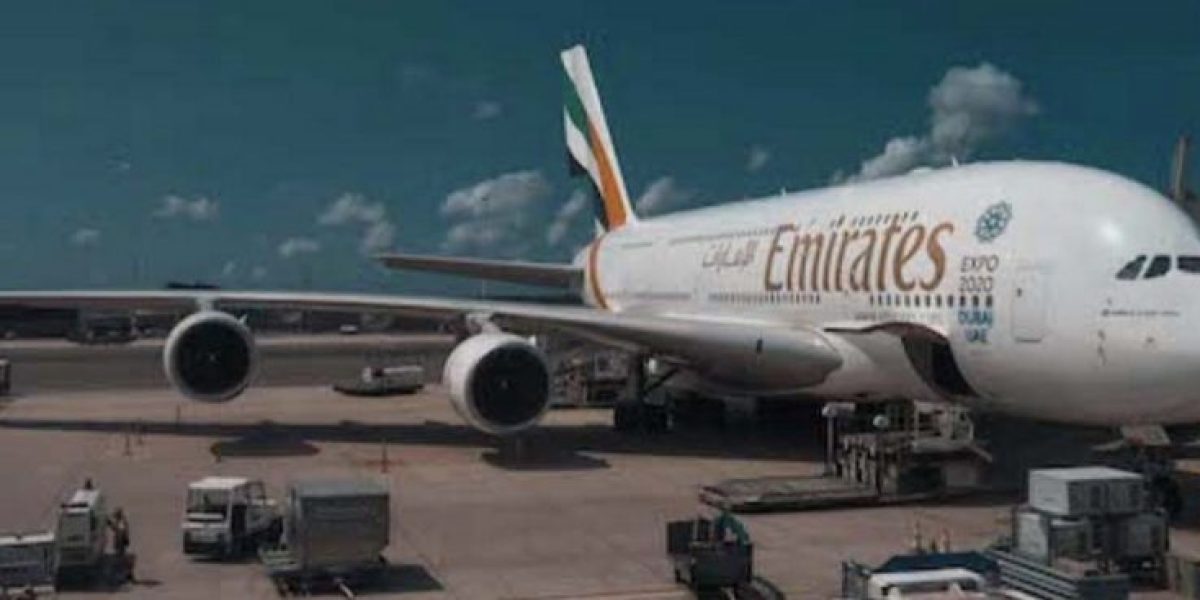Latest reports from the two leading aircraft producers suggest Airbus is on track to stroll past Boeing this year and become the largest plane maker for the first time in 8 years. The ongoing 737 MAX crisis has lasted four months, already longer than Boeing or any of its stakeholders anticipated. Boeing’s second quarter earnings report reiterated warnings surrounding the future of the plane.
Airbus announced that they had delivered 389 aircraft in the first half of this year, up 28% on a back-ended 2018. They now need only perform in line with 2018 to reach their 880-890 aircraft guidance for the year. The mix shift within the deliveries was also a notable positive. Of the 294 A320 Family planes delivered, 234 were the higher price point and margin A320neo aircraft, compared to just 110 neo deliveries in the first half of 2018.

Source: WSJ, Jefferies estimates using company data
Meanwhile, Boeing have faced continued setbacks to their 737 MAX program following the two fatal crashes. Each announcement appears to be worse than expectations, yet support for Boeing has remained steady since the initial shock. Their delivery rate has dropped from 52 to 42 per month, having postponed their prior plan to expand to 57 per month. This has left many suppliers in limbo as Boeing’s software fixes fail to gain regulators’ approval. For instance, Spirit AeroSystems produce 70% of the MAX aircraft structure including the entire fuselage and had upgraded their production lines to accommodate rate 57 capacity. Instead, they are producing parts (and being paid by Boeing) for 52 aircraft per month, storing the extra parts at their facilities until Boeing can increase production again.
Unfortunately for Boeing and its suppliers, a key takeaway from their second quarter earnings call is that Boeing is not in control of the MAX’s future. They are confident that they will have a software fix satisfying the FAA’s requirements by September; however, approval then sits in the hands of regulators before a return to service can show us the true commercial impact of the crisis.
The FAA appear to be on their last warning after being complacent with America’s major aircraft manufacturer. The NY Times reported that after the Lion Air crash last October, FAA engineers “were shocked to discover they didn’t have a complete analysis of MCAS,” the fatal software system. Now, a dissatisfied pilot community post-approval could certainly prompt the end of the FAA, not to mention the reputational damage to Boeing and the 737 program.
The lingering downside case for Boeing is that the 737 MAX’s competitive position has been structurally degraded. A combination of market share loss and weaker pricing will erode margins and reduce profits. The need for a replacement jet becomes a reality, restarting a long cost cycle where initial R&D investments do not see any steady returns for up to a decade.
Nearer term, further delays to the MAX’s return to service may still have more serious impacts. Boeing’s CEO noted that a temporary shutdown of production would be considered if the timeline to recertification is extended. This has obvious supply chain implications to Boeing’s over 100 MAX suppliers, all of which already have separate ongoing negotiations with Boeing to limit crisis impacts while parts are stored. Many of these suppliers are too small to survive without consistent cash flow from their largest client, and Boeing is infamously the aviation industry bully.
More than 150 undelivered MAX planes are parked at sites around the US, including employee parking lots, plus the 380 jets that airlines have been forced to ground since March.

Source: https://www.youtube.com/watch?v=46InmJexzYg
Net orders for the year to date have been weak industry-wide, with Airbus recording only 88 for the half, compared to 261 for the same 2018 period. On the other hand, Boeing had a net total of negative 119 aircraft with more cancellations than orders. Boeing even lost a potential 50 plane order from Saudi budget airline Flyadeal, who became the first airline to switch from 737 MAX to A320neo jets in the wake of the crisis. They will instead purchase 50 A320neo planes from Airbus.
Low order numbers are due to a combination of factors. Uncertainty, both with the 737 MAX and on a global macroeconomic scale, coupled with already large backlogs and small supply chain issues with other aircraft models has contributed to the slow in orders. Decelerating traffic growth will affect airline profits, which are fundamental to ensure backlogs are delivered on schedule. However, Bernstein expects that this will be offset by cheap oil prices, with Brent crude below $70, leaving only isolated airline-specific issues that may impact.
Overall, Airbus appear to be in a favourable position to extend and even accelerate their current cycle of growth. Deliveries are largely assured through the 7200 plane order backlog, new additions to the A320neo Family got a great reception at the Paris Airshow, recent supply chain constraints have been repaired and their competition is buried deep in a crisis that may see even more orders shifted over to Airbus before a solution is approved.
 Lachlan Mackay is a Research Analyst with Montaka Global Investments. To learn more about Montaka, please call +612 7202 0100.
Lachlan Mackay is a Research Analyst with Montaka Global Investments. To learn more about Montaka, please call +612 7202 0100.





